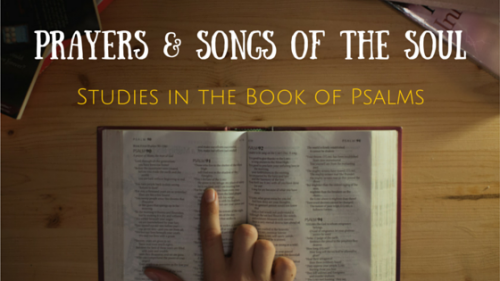A small percentage of the world's population are true atheists. The majority of the world believes in God, or at least various gods.
Hinduism claims millions of gods, Buddhism thousands, but the earmark of Judaism, Christianity, and even Islam is the belief in one sovereign God.
Even agnostics and atheists believe someone is supreme—themselves and their worldview. But some of those who claim to believe in God live as if they were atheists.
Scripture
For the director of music. Of David.
Fools say to themselves, “There is no God.” Fools are evil and do terrible things; there is no one who does anything good.
The Lord looked down from heaven on all people to see if anyone understood, if anyone was looking to God for help. But all have turned away. Together, everyone has become evil. There is no one who does anything good, not even one. [vss 1-3]
Don’t the wicked understand? They destroy my people as if they were eating bread. They do not ask the Lord for help. But the wicked are filled with terror, because God is with those who do what is right. The wicked upset the plans of the poor, but the Lord will protect them.
I pray that victory will come to Israel from Mount Zion! May the Lord bring them back. Then the people of Jacob will rejoice, and the people of Israel will be glad. [vss 4-7]
(Psalm 14:1-7 NCV) [Context– Psalm 14]
Key phrase— Fools say to themselves, “There is no God.”
[bctt tweet="Fools say to themselves, “There is no God.”"]
Digging Deeper...
Review the Scriptures above as you answer the following questions
What do "fools" say to themselves? How are these people described in this psalm?
What does the Lord see when He looks "down from heaven"? Could this be true of today's world?
What assurance is given regarding what is right and for those who are poor?
How do you think the last two statements about Israel relate to the rest of this psalm?
Reflection...
The term "fool" has a broad meaning, but in the psalms it speaks of people without moral soundness. These are people who lack integrity of character and dismiss the normal boundaries of right and wrong.
We've all seen people who think they can get away with something wrong, yet without experiencing any consequences. In some cases, it may be people who have no conscience—no clear sense of right and wrong, while other people may have a conscience, but choose to ignore its warnings. The "fool" characterized in this psalm could be either one.
The key to understanding this psalm is the heavenly perspective—God's view of things. He sees the wrong that is done and cares for the poor and oppressed. He also knows the end result for the foolish.
What can we do as individuals? If we've been foolish, we need to seek forgiveness and restoration from God. When we are pressed and oppressed, we need to seek the Lord as our refuge.
Make it personal...
Read through the Scripture text again as you consider and answer these questions
Are there times when you've acted more foolish than wise? If so, have you reconciled with God?
Is your life guided by your conscience or your feelings, wants, and desires?
What guides your life—the culture of the world around you or the truth of God?
How do you keep yourself from being carried along by the current of the culture around you?
Would you like a free study guide for your study of Psalms?



